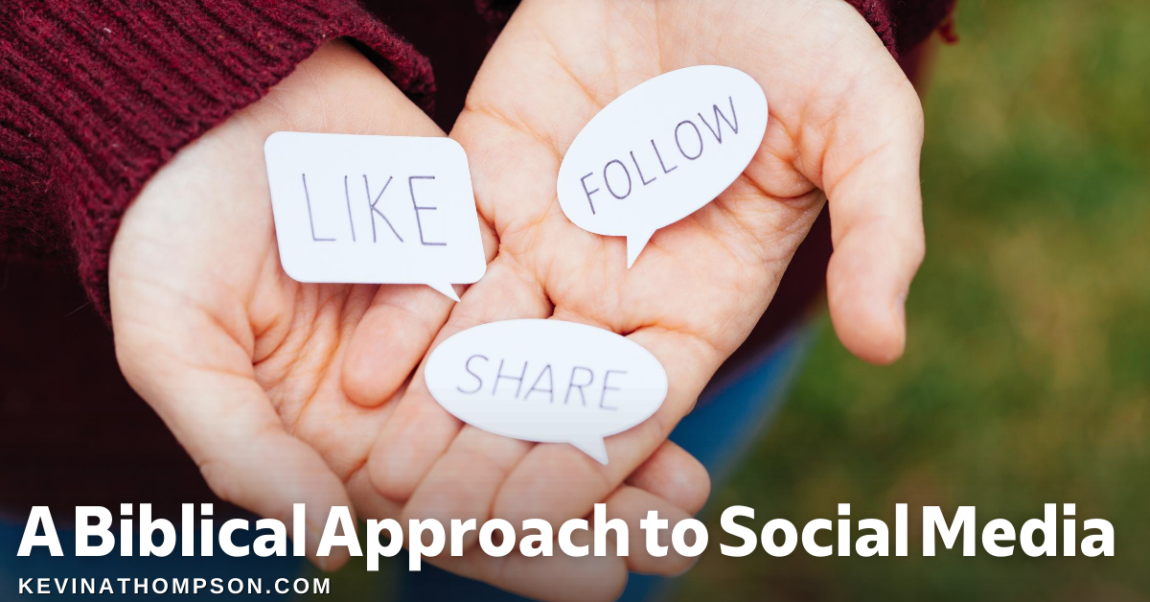In the first few months of 2020, our church leadership team went through a process of updating the core values of our church. These values reflect many of our theological beliefs and condense our focus into a few very specific areas. Once completed, we began to apply those values to every aspect of our church’s life. One major aspect is social media.
At the encouragement of some church members, I took our values and wrote a social media policy for our church staff. Yet in reviewing the policy, it quickly became clear that these are not ideas that should be saved only for those who are paid by the church. Instead, because they align with our values, they should be the general operating procedures of every person who calls Community Bible home and who chooses to engage in social media.
While every church has its own unique values, my guess is that anyone who seeks to follow Jesus can use these basic principles as a guide of how to interact with others on Facebook, Twitter, or other outlets. More importantly, they can provide a discussion point by which you can determine your own values and intentionally decide how you will use social media.
Community Bible Social Media Policy
All social media posts should align with our mission, vision, and values. As members of Community Bible, we represent not just ourselves but also Jesus and the Church. Every communication should be influenced by the life we have found in Jesus, our desire to love our neighbors, and our hope in helping others do the same.
Every post and interaction (likes, shares, retweets, etc.) on social media should align with our core values:
Respect: Every post will communicate respect not just for those with whom we agree but especially with those with whom we disagree. We will not use derogatory language or titles. We will not demean or dehumanize people. We will be thoughtful in attempting to understand others and interact with their highest ideals. We will discuss issues, but we will not negatively talk or write about people. (See: Four Words that Make Me Feel Respected)
Truth: Every post will be truthful. If a post is found to be untruthful, misleading, ill-informed, or ill-intended, it will be removed with apologies. We will not shade an idea or purposefully leave out relevant information to make our point. Because God’s truth is often viewed as political (i.e. abortion, racism, sexism, etc.), we may be political but we will not be partisan. We will neither promote a specific political party nor encourage abstaining from a party. (This might be the place where this policy is more church staff specific. While church members can promote a political party, they should do so in a radically different way than those separated from Jesus. Consider Tim Keller’s article “How Do Christians Fit Into a Two-Party System? They Don’t”)
Grace: Every post will be filled with grace. We will not be hateful nor vindictive. We will not return evil with evil. Even to our critics, we will be kind and thoughtful. We will remember the grace we have been given and give that grace to others. We will not fight or debate online. We will welcome people into conversations offline, preferably in person so we can listen and seek to understand. We will always assume the best when reading the posts or comments of another person and will quickly ask “help me understand _____” when we are tempted to write a negative story. (See: We’ve Never Needed More Grace)
Generosity: We will exude generosity online by seeking to help others, encourage them, and point them toward Jesus. We will leverage our platforms for the well-being of our people and our communities. We will generously praise others even when we don’t fully align with every idea they hold. (See: The Facebook Cycle of Hate)
First and Best: Even our social media posts will show thoughtfulness, diligence, and a good work ethic. We know when we are quick to speak, that speech is more prone to sin. We will give our best online knowing it is the only window by which some will see the heart of our faith and church. (See: 7 Proverbs for Facebook)
Eternal Impact: Our primary goal, even through social media, will be to make much of Jesus and help others to a life-changing relationship with Him. This does not mean that every post will be explicitly about Jesus. It does, however, mean that every post will have an impact on our relationship with others and the eternal impact we can have with them. (See: Learn to Communicate Like Facebook)
Sacrifice: We will give up some good social media posts in order to make some great posts. Living in a polarizing time, we recognize that some well-intended messages may be easily misunderstood. We will weigh the pros and cons of each message to determine if the post is worth potential costs. (See: Sometimes You Need a Facebook Timeout)
Multi-Generational: We seek to love all people, including people of different ages, races, socio-economic backgrounds, and experiences. We also know that each of these groups brings differing lenses to our social media pages. We will be mindful of these differences and seek to communicate in the most sensitive way possible so that every person will feel respected and valued. (See: Read My Text Messages for a Day)
What would you add?
Is there anything that you would question or change?
How can we best use social media during this age of division and contention?




One Response to A Biblical Approach to Social Media